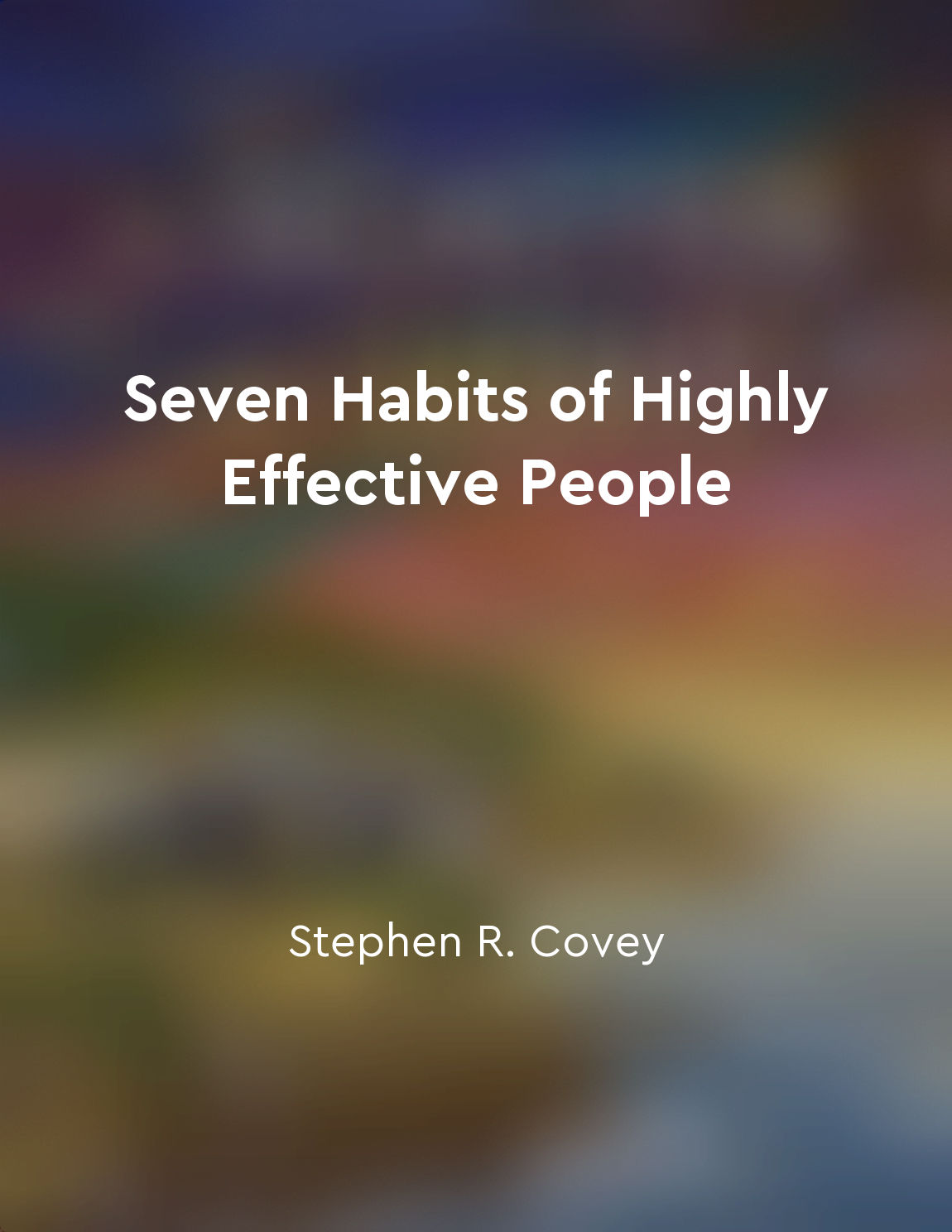Audio available in app
Seek first to understand, then to be understood from "summary" of Seven Habits of Highly Effective People by Stephen R. Covey
Many people do not listen with the intent to understand; they listen with the intent to reply. They are either speaking or preparing to speak. They filter everything through their own paradigms, reading their autobiography into other people's lives. When another person speaks, they are often thinking about how they are going to respond, rather than focusing on truly understanding the other person's perspective. This habit, or lack thereof, is the basis for almost all communication breakdowns. If we want to effectively communicate with others, we must first seek to deeply understand them. This means putting aside our own biases, judgments, and preconceived notions, and truly stepping into the other person's shoes. It requires us to listen with an open mind and an open heart, seeking to understand not only the words being said but also the emotions, values, and beliefs behind those words. When we seek to understand others first, we are able to create a safe space for them to express themselves fully. This helps to build trust and rapport in the relationship, as the other person feels heard and valued. Only once we have truly understood the other person can we then expect them to be open to understanding our perspective. By seeking to understand before seeking to be understood, we are able to communicate more effectively, resolve conflicts more easily, and build stronger relationships with others. This habit requires empathy, patience, and a genuine desire to connect with others on a deeper level. It is a fundamental principle of effective communication and a key component of building highly successful relationships in both personal and professional settings.- Seeking to understand before seeking to be understood is about approaching communication with humility and a willingness to learn from others. It requires us to set aside our own agenda and ego, and to truly listen and empathize with the other person. When we practice this habit consistently, we are able to foster deeper connections, resolve conflicts more peacefully, and create a more harmonious and understanding world.


